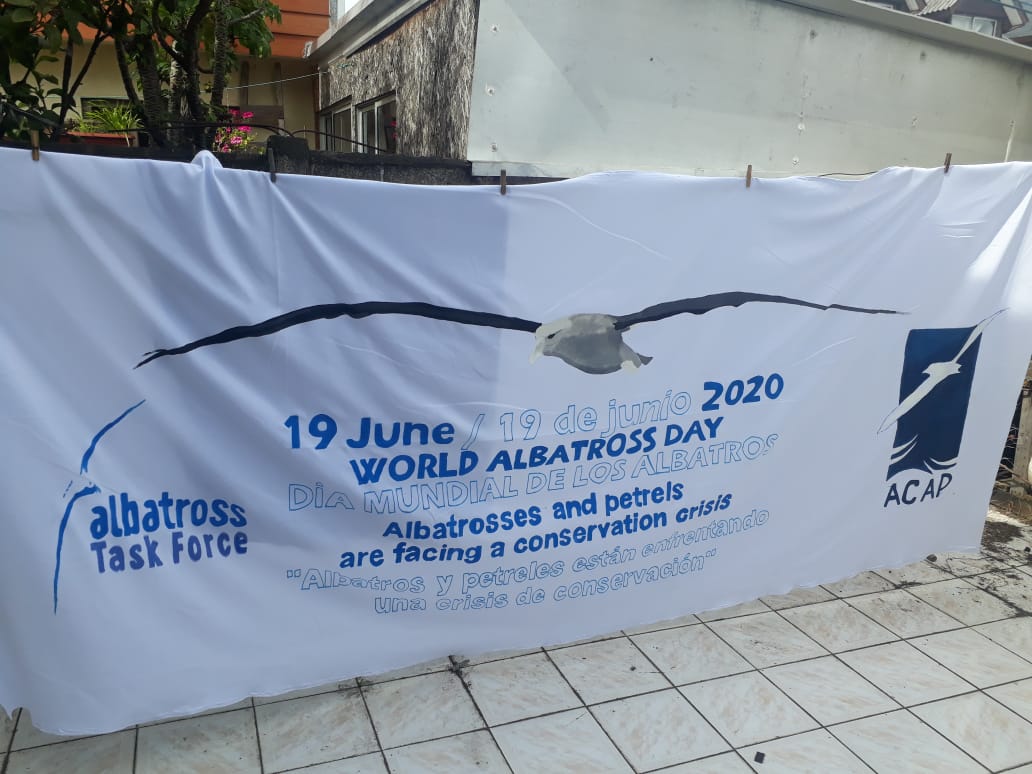
Albatross Task Force - Chile makes a dual-language WAD2020 banner to take to sea, photograph by Diego Segovia
In response to the global conservation crisis being faced by albatrosses, countries across the globe need to step up to the challenge of implementing measures to reduce the impacts by invasive species at their colonies and to reduce fisheries bycatch at sea. The 13 Parties to the Albatross and Petrel Agreement have encouraged the use of mitigation measures such as bird-scaring lines in longline and trawl fisheries to help protect albatrosses at sea through the implementation of fisheries regulations. However, fisheries bycatch does not only occur in the jurisdictional waters of ACAP Parties, but also beyond them on the High Seas.
The experience of BirdLife International’s Albatross Task Force (ATF) - the world’s first international team of bycatch experts dedicated to saving the albatross by working on vessels and promoting the use of mitigation measures in fisheries – has highlighted the fact that many fishing fleets remain unaware of the role bycatch mitigation measures can play in saving albatrosses from extinction. Since 2006 ATF teams have been working directly with small-scale fishers and fishing companies worldwide to raise awareness and demonstrate the effectiveness of mitigation measures to fishing crews and thereby increase compliance with their use.
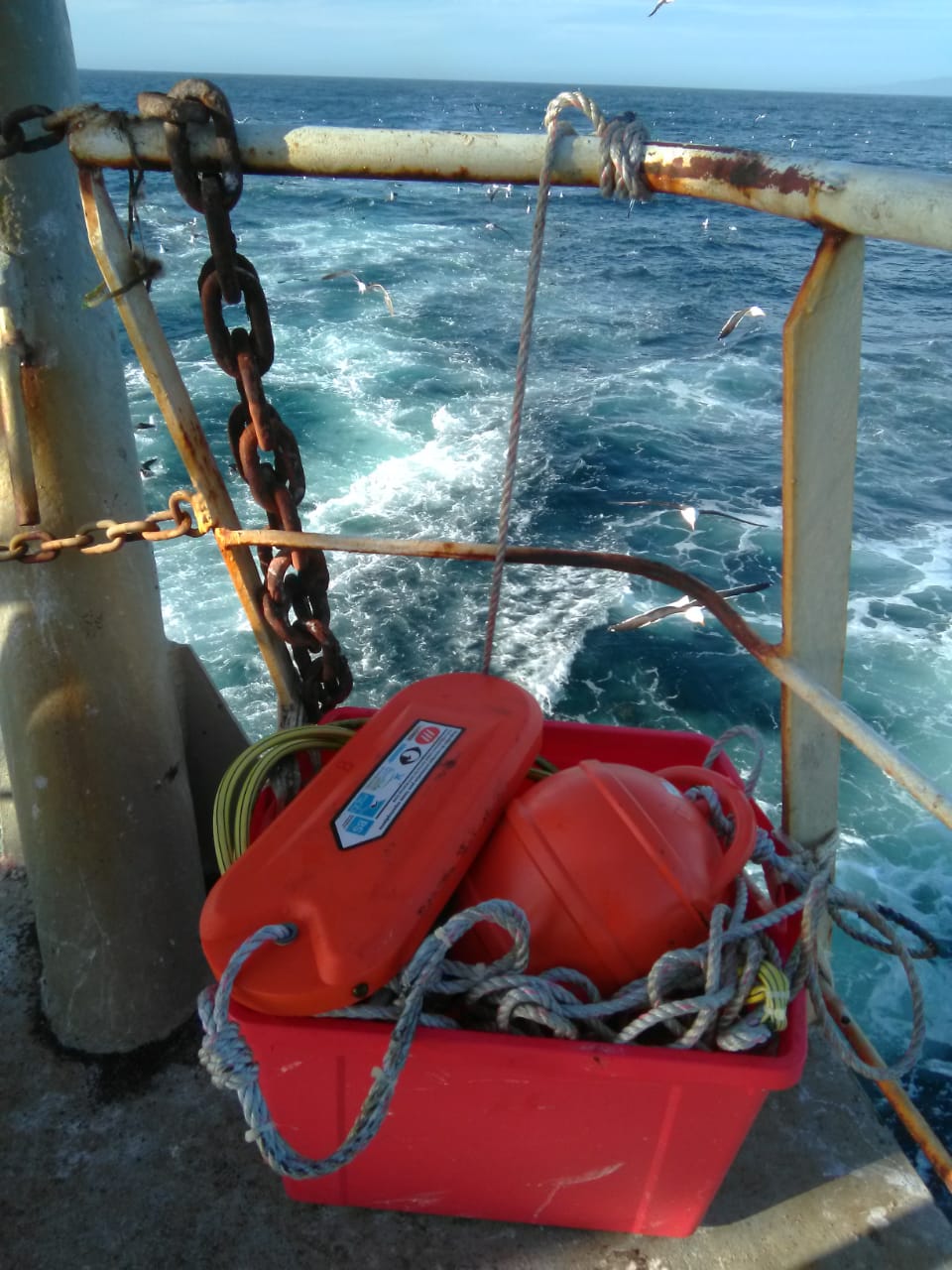 Mitigation kit including an award-winning ‘Tamini Tabla’ tow device used during mitigation trials in south-central Chilean waters, photograph by ATF-Chile
Mitigation kit including an award-winning ‘Tamini Tabla’ tow device used during mitigation trials in south-central Chilean waters, photograph by ATF-Chile
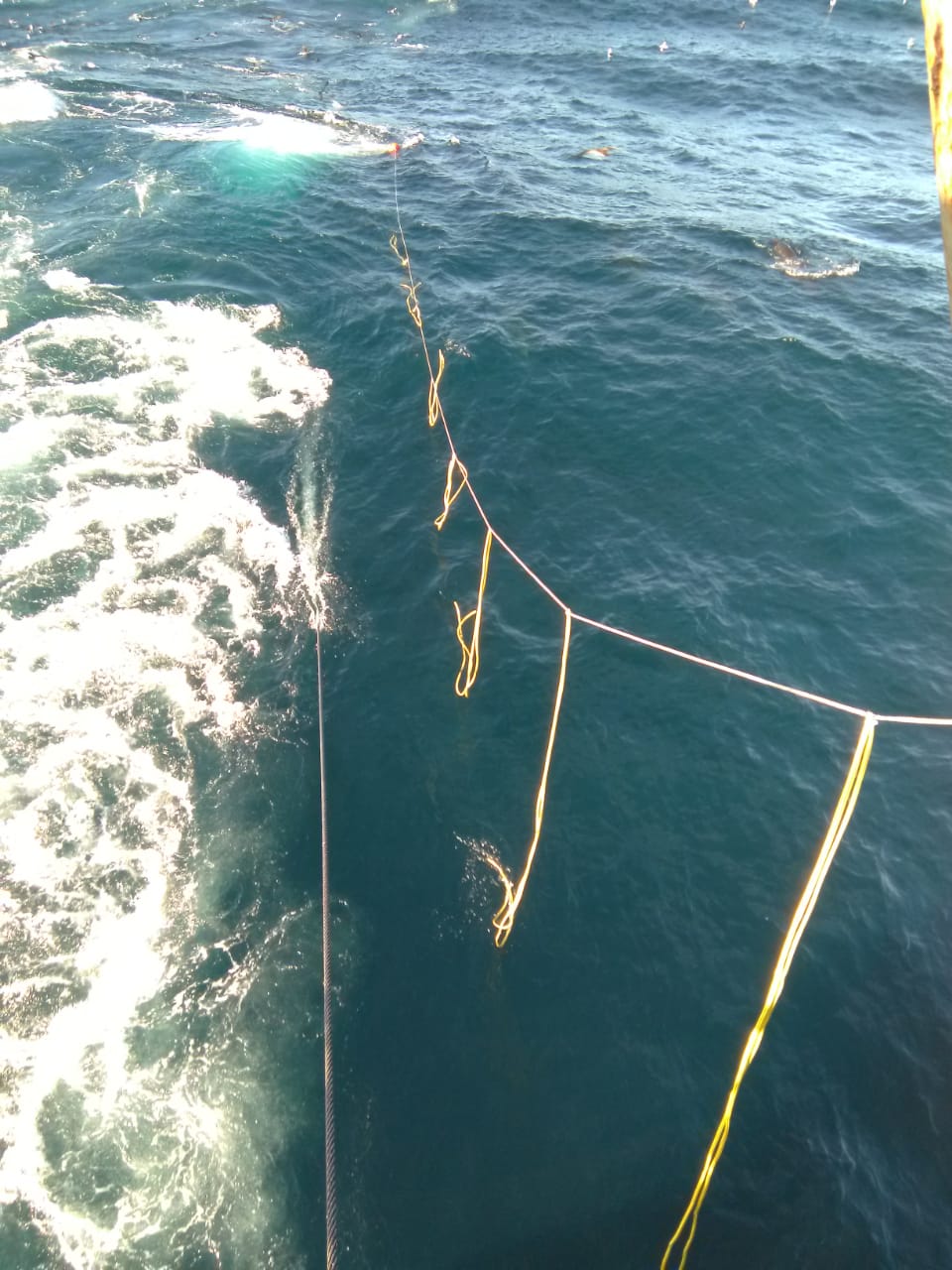
A bird-scaring line gets deployed behind a demersal trawler, south-central Chile, photograph by ATF-Chile
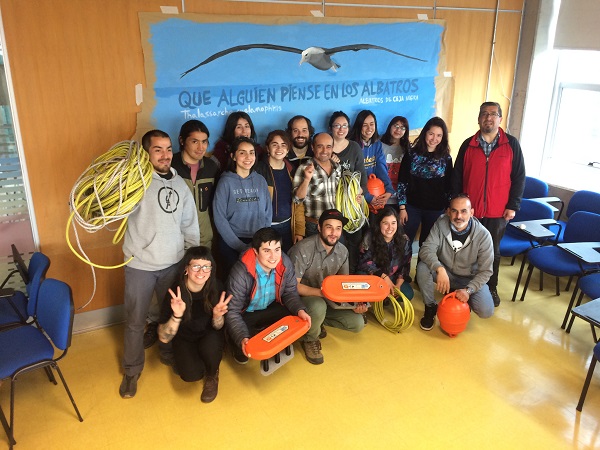
CODEFF (Comité Pro-Defensa de la Fauna y Flora, BirdLife International’s partner in Chile) volunteers and observers with a trawler bird-scaring line they have made
Photograph by ATF-Chile
In Chile the ATF has been working with trawl fleets since 2011. In 2018, an important knowledge transfer took place in the form of an “at-sea classroom” involving both local researchers and deck crews working in the Humboldt Current System.
New regulations for trawl fisheries were subsequently introduced in Chile in 2019, with the aim to reduce their impacts on seabirds (click here). Moving forward, the ATF will continue to work with fisheries in Chilean waters to navigate towards best practices being applied on board.
As the industry transitions towards more seabird-safe fishing practices in the face of the new regulations, the team’s work is primarily focused around increasing awareness about the correct use of mitigation measures. Additionally, Chile’s ATF team is using its World Albatross Day 2020 banner – the very first to be taken to sea - to help raise awareness of the plight of albatrosses amongst those working at-sea in Chilean waters. Gaining recognition among fishers of the need to conserve albatrosses is undoubtedly a powerful sign that the tide of our collective attitude and commitment is changing.
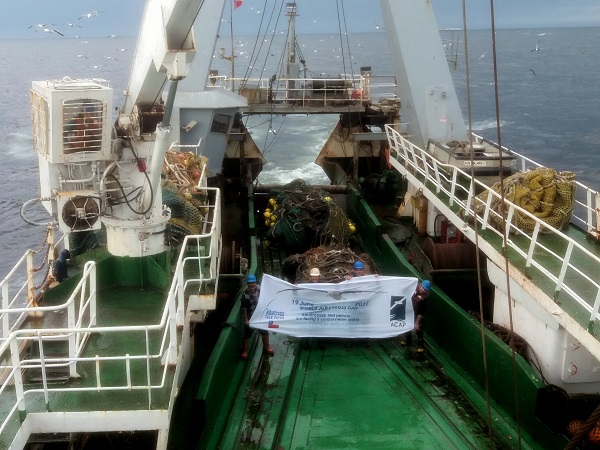
ATF-Chile's WAD2020 banner is deployed by crew members aboard the Chilean trawler PAM Bonn in south-central Chile on 20 December 2019
Photograph by Christian Ibieta, ATF-Chile
Have a great 2020 for all and a great WAD2020 across all the seas of the world!
With thanks to Nina da Rocha, Christian Ibieta, Diego Segovia, Association of Industrial Fisheries of Chile (Asociación de Industriales Pesqueros, ASIPES) and the PacificBlu fishing company.
Cristián G. Suazo, Albatross Task Force – Chile, 21 January 2020

 English
English  Français
Français  Español
Español